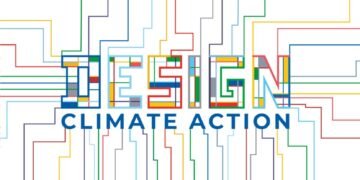The EB-2 visa, also known as the Employment-Based Second Preference visa, is a U.S. immigrant visa category designed for foreign nationals with exceptional abilities in their respective fields, advanced degrees, or exceptional skills in arts, sciences, business, education, or athletics. It falls under the broader category of employment-based immigration, allowing individuals to live and work permanently in the United States.
There are three main subcategories within the EB-2 visa:
- EB-2A: Individuals with Exceptional Abilities: This category is for individuals who possess exceptional abilities in fields such as the sciences, arts, education, business, or athletics. To qualify, applicants must have a high level of expertise, recognition, and acclaim in their field. They are not required to have a specific job offer in the U.S., but they must demonstrate that their presence will significantly benefit the country.
- EB-2B: Individuals with Advanced Degrees: This subcategory is for foreign nationals with advanced degrees (master’s, Ph.D., or equivalent) in their fields. Applicants must have a job offer from a U.S. employer, and the employer typically needs to demonstrate that there are no qualified U.S. workers available for the position.
- EB-2C: National Interest Waiver (NIW): This is a unique provision within the EB-2 visa that allows individuals to bypass the requirement of a specific job offer and labor certification process if their work is considered to be in the national interest of the United States. NIW applicants usually need to demonstrate that their work has substantial benefits for the country, such as contributions to research, healthcare, or other critical fields.
The application process for the EB-2 visa involves several steps:
- Labor Certification: For the EB-2B category, the employer must complete the labor certification process through the U.S. Department of Labor. This process involves proving that there are no suitable U.S. workers available for the position being offered to the foreign national.
- Form I-140: The prospective employer submits Form I-140, Immigrant Petition for Alien Worker, to the U.S. Citizenship and Immigration Services (USCIS). This form establishes the foreign national’s eligibility for the EB-2 visa based on their qualifications and the offered position.
- National Interest Waiver (if applicable): If applying for the EB-2C category, the applicant needs to demonstrate that their work is of national importance and that a waiver of the labor certification requirement is justified.
- Priority Date and Visa Bulletin: Once the Form I-140 is approved, the foreign national receives a priority date, which determines their place in line for visa processing. They must then wait for their priority date to become current according to the Visa Bulletin issued by the U.S. Department of State.
- Adjustment of Status or Consular Processing: Once the priority date becomes current, the applicant can either apply for an adjustment of status if they are already in the U.S. or go through consular processing if they are outside the U.S.
- Form I-485 (if adjusting status): If applying for adjustment of status, the foreign national submits Form I-485, Application to Register Permanent Residence or Adjust Status, to USCIS.
- Visa Interview (if consular processing): If outside the U.S., the applicant attends a visa interview at a U.S. embassy or consulate.
It’s important to note that the EB-2 visa application process can be complex and time-consuming. Working with immigration professionals or legal experts who specialize in U.S. immigration law can greatly assist applicants in navigating the requirements and ensuring a successful application.
How to apply for an EB-2 visa?
Applying for an EB-2 visa involves several steps and requires careful attention to detail. Here’s a general overview of the process:
- Determine Eligibility: Before applying, ensure that you meet the eligibility criteria for the EB-2 visa category. You must fall into one of the subcategories: individuals with exceptional abilities, individuals with advanced degrees, or individuals applying for a National Interest Waiver (NIW).
- Labor Certification (EB-2B Category Only): If you’re applying under the EB-2B category (individuals with advanced degrees), your employer must obtain a labor certification from the U.S. Department of Labor. This certification verifies that there are no qualified U.S. workers available for the position being offered to you.
- File Form I-140: The prospective employer files Form I-140, Immigrant Petition for Alien Worker, with the U.S. Citizenship and Immigration Services (USCIS). This form establishes your eligibility for the EB-2 visa based on your qualifications and the job offer. You’ll need to submit supporting documentation, including educational credentials, employment history, and evidence of exceptional abilities (if applicable).
- National Interest Waiver (EB-2C Category Only): If you’re applying for a National Interest Waiver (EB-2C category), you need to demonstrate that your work is of significant national importance and justifies waiving the labor certification requirement. This typically involves showcasing your contributions to fields that benefit the United States.
- Wait for Priority Date to Become Current: Once your Form I-140 is approved, you’ll receive a priority date. You must monitor the Visa Bulletin issued by the U.S. Department of State to see when your priority date becomes current, indicating that a visa number is available for you.
- Adjustment of Status or Consular Processing: Depending on your location, you can either apply for an adjustment of status (if you’re already in the U.S.) or go through consular processing (if you’re outside the U.S.).
- Adjustment of Status (I-485): If you’re in the U.S., file Form I-485, Application to Register Permanent Residence or Adjust Status, with USCIS. This step is necessary to change your status from a temporary visa holder to a permanent resident.
- Consular Processing: If you’re outside the U.S., attend a visa interview at a U.S. embassy or consulate in your home country.
- Attend Visa Interview (Consular Processing Only): If you’re going through consular processing, attend the visa interview at the U.S. embassy or consulate. Be prepared to present documentation supporting your eligibility and intention to live and work in the U.S.
- Undergo Medical Examination: All applicants seeking adjustment of status are required to undergo a medical examination by an authorized panel physician. The results of the examination are submitted along with your application.
- Receive Visa or Adjustment of Status Approval: If your application is approved, you’ll receive either an immigrant visa on your passport (through consular processing) or a Green Card (through adjustment of status).
It’s essential to note that the EB-2 visa application process can be intricate, and requirements may vary based on individual circumstances. Working with an experienced immigration attorney or legal expert can help ensure that you navigate the process correctly and increase your chances of success.
How much does it cost to apply for an EB-2 visa?
The cost of applying for an EB-2 visa can vary based on several factors, including the specific subcategory you’re applying under, whether you’re adjusting status within the U.S. or going through consular processing, and any additional fees associated with medical examinations, translations, and other services. Here are some of the key fees you might encounter when applying for an EB-2 visa:
- Form I-140 Filing Fee: This fee is associated with filing Form I-140, the Immigrant Petition for Alien Worker. The filing fee for Form I-140 is $700.
- Form I-485 Filing Fee (Adjustment of Status): If you’re applying for adjustment of status within the U.S., you’ll need to file Form I-485, Application to Register Permanent Residence or Adjust Status. The filing fee for Form I-485 is $1,225 for applicants aged 14 to 78. This fee includes the cost of biometric services (fingerprinting).
- Consular Processing Fee: If you’re going through consular processing, you’ll need to pay a fee to the U.S. embassy or consulate where you attend your visa interview. This fee can vary based on the embassy or consulate and is typically around $325.
- Visa Application Fee: This fee is also associated with consular processing and is paid to the U.S. Department of State. The fee for most employment-based immigrant visas is $325.
- Medical Examination: As part of the application process, you’ll need to undergo a medical examination by an authorized panel physician. The cost of the medical examination can vary based on the physician’s location and other factors.
- Attorney’s Fees: If you choose to work with an immigration attorney to assist with your EB-2 visa application, their fees will also be a part of the overall cost. Attorney’s fees can vary widely based on the complexity of your case and the services provided.
It’s important to check the official website of the U.S. Citizenship and Immigration Services (USCIS) and the U.S. Department of State for the most up-to-date fee information before submitting your application. Additionally, consider any other potential costs such as translations, document preparation, and other related expenses.










